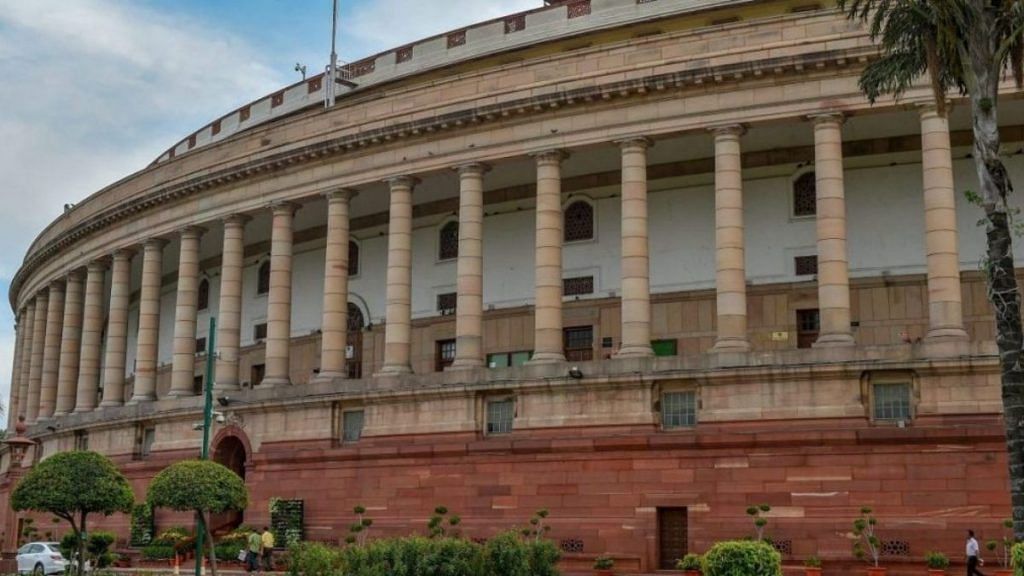New Delhi: Congress leader Shashi Tharoor-led Parliamentary panel on Information Technology (IT) is learnt to have batted for “early implementation” of the Law Commission’s recommendation to make paid news an electoral offence.
The move will have a “deterrent effect on the incidence of paid news”, the standing committee on IT is learnt to have said in its report on ‘Ethical Standards in Media’, which was adopted unanimously in its meeting Tuesday, sources told ThePrint.
The report will be tabled in the winter session of the Parliament, which is beginning on 29 November.
In its report, the panel also expressed concern over the menace of fake news and urged the government to “develop some legal provisions” to counter the challenge, sources said.
IT panel bats for making paid news an electoral offence
The Press Council of India in a 2010 report had defined paid news as “any news or analysis appearing in any media (print & electronic) for a price in cash or kind as consideration”.
Parliament sources told ThePrint that the Tharoor-led panel “would desire” the Ministry of Information and Broadcasting to follow up the matter with the Law Commission of India and inform it of the “progress” in the matter.
The Law Commission in its 255th report on ‘Electoral Reforms’, which was submitted to the government in March 2015, had recommended paid news to be made as an electoral offence. Following this, the Union law ministry had set up a task force to look into the implementation, the IT panel noted.
The IT panel report stated that the task force submitted its report in 2016 and currently both the reports are being considered by the law ministry.
The panel also said that the Election Commission of India had also proposed amending the Representation of People Act, 1951 to make “publishing and abetting of publishing of paid news as an electoral offence with exemplary punishment”.
Also read: IB, home, RAW, defence officers’ tenure can be extended for 2 yrs — Modi govt issues notification
Grievance redressal mechanism, media helpline recommended
Expressing concern over the menace of fake news, the Standing Committee on IT recommended that the term “fake news” should be broadly defined.
The committee is learnt to have said in its report that the “menace of false/fake news has become a disturbing trend in India, where the contributors of content are not only owners of websites, but also individual subscribers, on whom exercising control is posing a very big challenge”.
Noting that countries such as Australia and Malaysia have already enacted anti-fake news laws, the panel said it wants the I&B ministry to study these.
The panel also highlighted that there is no grievance redressal mechanism currently for an individual if something is published against them in the media. To address this, the panel recommended that the I&B ministry should consider having a redressal mechanism at the district, state and central level, and all newspapers and TV channels should also set up an in-house system.
The IT committee also recommended that the I&B ministry could “look into the possibility” of having a media helpline number where an aggrieved individual can call and register their complaint.
This will “strengthen the Grievance Redressal Mechanism, which would not only help the aggrieved person/organization but would also help maintain the standards of ethics in Media”, the report is learnt to have said.
Current laws
Laws and rules already exist under the Indian Penal Code 1860, the Information Technology Act, 2000 and the Information Technology (Intermediaries Guidelines) Rules 2011 to tackle and penalise persons spreading ‘fake news’, the panel noted in its report.
The fact check units set up by the Press Information Bureau (PIB) also came in for praise from the IT panel.
PIB’s fact check units (FCUs) are currently running in 17 of its regional offices. The Tharoor-led panel urged the I&B ministry to open more such FCUs to “remain vigilant for viral videos/news which” can create “public disorder”.
Also read: Modi govt holds summits, pushes for sops to try get vehicle scrapping policy off ground
